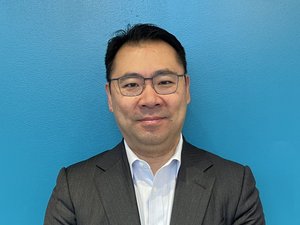More than two years ago, CommonAngels Ventures started acting more like a venture capital firm and less like the angel investor group it was founded as in 1998, with the goal of acting more nimble when putting funding deals together for early-stage startups. At the time, CommonAngels added "Ventures" to its name to demonstrate that change.
Now the firm is ready to change its name again, and this time it's completely doing away with the long-held "CommonAngels" brand to shed itself of any association with the word "angel." As of Monday morning, the firm's name is now Converge Venture Partners. We first reported on the impending name change nearly two weeks in the BostInno Beat.
Senior Managing Director Maia Heymann told me over the weekend that the firm decided to change the name so that it would better reflect the new funding model that was instituted in 2013. And it was only done now after the firm made sure the new funding model and everything else within the organization was working as planned.
"It was very clear to me I didn't want to make a name change until I made real change, culturally, behaviorally and procedurally, I call it a mindset reset."
"It was very clear to me I didn't want to make a name change until I made real change, culturally, behaviorally and procedurally," Heymann said. "I call it a mindset reset."
Converge's name change and its previous change in funding model was made as more and more funding sources have become available—like accelerators, incubators and crowdfunding sites—making it increasingly more difficult for entrepreneurs to figure out what works best for them.
To stand out, Heymann said, the firm needed to make the funding process easier for entrepreneurs.
"I really do hold tight to the concept that the entrepreneur is the customer, and they don't like fundraising so how they come to present [her business] has to be a positive process," Heymann said.
In a way, the name change completes the firm's transformation from an angel group to a VC firm. But Heymann cautioned against calling Converge just another VC firm because she said what separates it from others is its network of about 60 angels, now called venture partners, who have invested in the firm's $27 million venture fund and represent a wide range of expertise.
"Fundamentally, that’s what got me motivated to take on this role," Heymann said. "We have this phenomenal network. If you combine this with dedicated capital, you can have a very powerful force in the market for early stage investment."
With a traditional angel group, Heymann said, the process for putting together a deal could be time-consuming for entrepreneurs and provide them with less certainty on the funding side.
"We have this phenomenal network. If you combine this with dedicated capital, you can have a very powerful force in the market for early stage investment."
"If you pitch an angel group, you don't know how much capital you’re going to get because you don’t know how many angels are going to invest," she said. "The whole process relies on support and capital from 15 to 20 individuals. If each person is investing $20,000 each, I think that’s hard for an entrepreneur."
Angel groups can also be difficult to navigate, Heymann said, because when an entrepreneur pitches her business, it's usually not the angels that are experts in the entrepreneur's respective sector who ask the questions.
"The people asking questions were people who didn’t know the sector, so they had to get their 20 questions answered," she said. "To me, this was the fundamental problem we are trying to change: The angels who knew the sector, they already knew they were going to invest and they weren’t talking."
These kinds of difficulties are why Converge moved toward a more fund-centric model, where all the venture partners must invest in the firm's fund and a full-time investment team—consisting of Heymman, Managing Director James Geshwiler and analyst Ash Egan—makes quick decisions on deals for early-stage software companies. Once a deal is completed, the firm provides its new portfolio company with access to one or two of its venture partners based on the their field of expertise. Individual venture partners can also invest their own funds.
Heymann said the firm settled on the name "Converge" for two reasons: For one, it represents the converging of separate forces that are required to build companies (i.e. founders, capital, etc.). It also represents the converging of the firm's capital into a fund.








